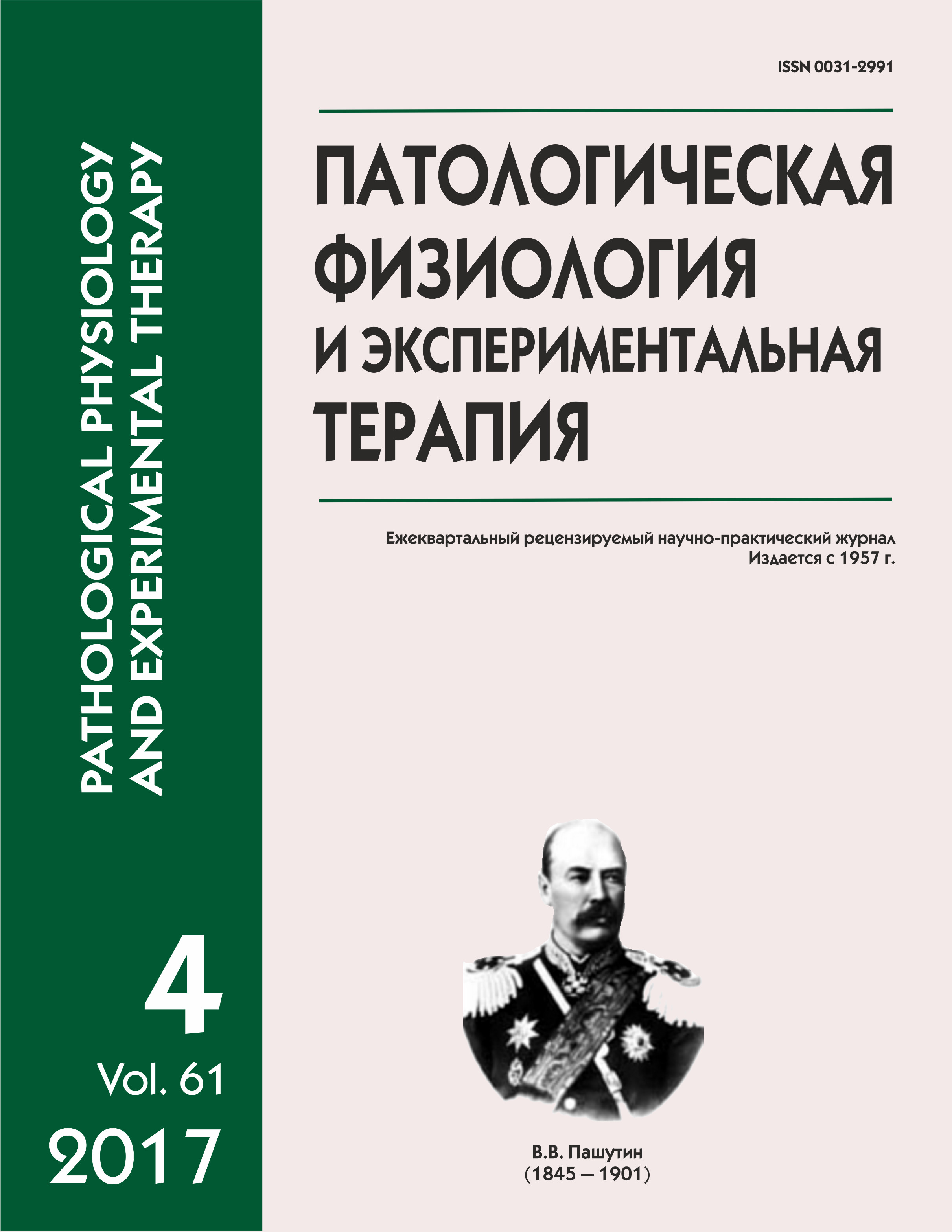Нейропротекторные эффекты антител к глутамату при нарушениях памяти, индуцированных олигомерами провоспалительного белка S100A9, у стареющих животных
DOI:
https://doi.org/10.25557/IGPP.2017.4.8518Ключевые слова:
обучение, память, амнезия, УРПИ, белок S100A9, олигомеры, антитела к глутамату, аминокислоты, моноамины, гиппокамп, префронтальная кора, нейропротекция.Аннотация
Цель исследования — изучение эффектов хронического интраназального введения антител к глутамату совместно с полученными in vitro олигомерами провоспалительного белка S100A9 на процесс воспроизведения пространственной памяти, а также на содержание нейромедиаторных аминокислот и биогенных аминов в релевантных структурах мозга — гиппокампе и префронтальной коре у 12-месячных мышей С57Bl/6. Методика. В поведенческих экспериментах у всех животных проводили выработку условного рефлекса пассивного избегания и тестировали воспроизведение памятного следа, после этого в нейрохимическом исследовании в гиппокампе и префронтальной коре методом ВЖХ проводили определение концентрации нейромедиаторных аминокислот и биогенных аминов. Результаты. Показано, что введение белка S100A9 олигомеров индивидуально приводило к нарушению воспроизведения памятного следа, а в сочетании с антителами к глутамату данного эффекта выявлено не было. Обнаружено значительное повышение концентрации глутамата в обеих церебральных структурах стареющих животных при действии S100A9 олигомеров и снижение содержания аминокислоты при совместном введении с антителами к глутамату до нормы. Показано существенное снижение содержания дофамина в гиппокампе и префронтальной коре в условиях влияния S100A9 олигомеров, а также повышение уровня его метаболитов в гиппокампе с нормализацией обмена дофамина в присутствии антелел к глутамату. Заключение. Выявленные антиамнестические эффекты антител к глутамату и нормализация нейрохимического профиля в условиях вызванной центральной токсичностью S100A9 олигомерами могут быть использованы в разработке подходов нейропротективной коррекции в том числе при болезни Альцгеймера.Загрузки
Опубликован
2017-12-18
Выпуск
Раздел
Оригинальные исследования
Как цитировать
[1]
2017. Нейропротекторные эффекты антител к глутамату при нарушениях памяти, индуцированных олигомерами провоспалительного белка S100A9, у стареющих животных. Патологическая физиология и экспериментальная терапия. 61, 4 (Dec. 2017), 13–20. DOI:https://doi.org/10.25557/IGPP.2017.4.8518.













